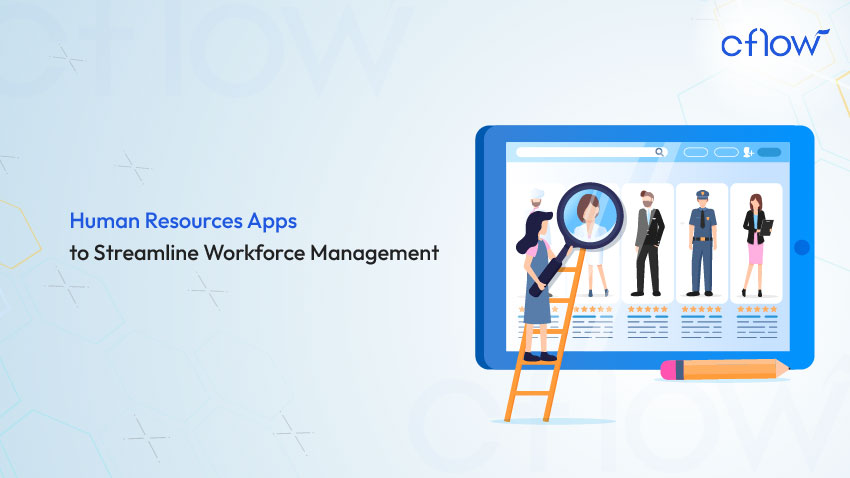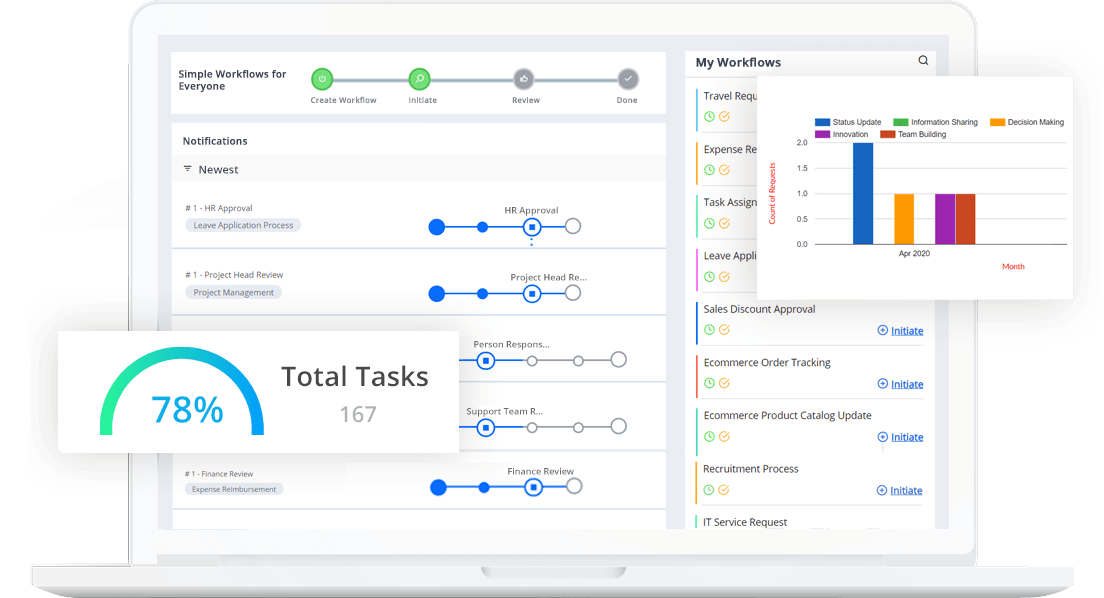Top 10 Human Resources Apps to Streamline Workforce Management in 2025

Key takeaways
- Human resources apps optimize workforce management by automating repetitive tasks and improving team productivity.
- These apps support SMBs and enterprises in streamlining recruitment, payroll, and employee performance tracking.
- HR apps like Cflow offer powerful automation and mobile accessibility, ensuring seamless HR operations.
- Choosing the right HR app depends on features like integration, scalability, and user-friendly design.
Understanding a Human Resources App
A human resources app is a software application designed to manage and streamline HR processes like recruitment, payroll, employee onboarding, and performance management. These apps cater to organizations of all sizes, helping them automate repetitive tasks, maintain compliance, and foster employee engagement.
HR apps integrate various features into a centralized platform, including time tracking, performance analytics, and communication tools. According to a study by Deloitte, companies that have invested in HR software applications have reported up to 22% higher productivity levels and 30% lower employee turnover rates. In an increasingly digital workplace, HR apps have become indispensable for improving workforce efficiency and creating a more organized work environment.
Table of Contents
Purpose of a Human Resource Management App
Human resource management apps simplify and automate essential HR functions, making them vital for organizations looking to improve efficiency. These apps serve several purposes:
To understand their significance, here are the key purposes of using HR management apps:
Streamlining Recruitment:
Recruitment automation automates candidate sourcing, screening, and onboarding processes. According to a Deloitte study, companies utilizing recruitment automation have seen a 75% reduction in their time to hire and a 30% decrease in recruitment costs. The importance of AI and automation in the modern hiring landscape cannot be overstated.
Improving Employee Engagement:
HR apps can facilitate communication, feedback, and recognition programs to enhance employee satisfaction. For example, they can enable real-time feedback, structured surveys, and even gamification tools that motivate employees and make them feel valued.
Ensuring Compliance:
Tracks employee data and regulatory requirements to maintain compliance with labor laws. This includes automated tracking of working hours, overtime, and policy updates to ensure organizations meet local and global compliance standards effortlessly.
Enhancing Productivity:
Offers self-service portals for employees to manage leave requests, benefits, and schedules without HR intervention. This eliminates delays and empowers employees to take charge of their needs, freeing up HR professionals for more strategic tasks.
Data-Driven Decisions:
Provides actionable insights through analytics, enabling HR leaders to make informed decisions. Detailed dashboards and predictive analytics help in identifying trends, such as turnover rates or performance dips, ensuring proactive measures can be implemented.
Key Benefits of Automated HR Apps
Automated HR apps offer a range of benefits that can transform workforce management. Here are some key advantages:
Time Efficiency:
By automating repetitive tasks such as payroll processing, attendance tracking, and generating reports, human resource management applications can save countless hours. This efficiency allows HR professionals to focus on more strategic activities like employee development and organizational growth.
Enhanced Accuracy:
Manual HR tasks, like payroll calculations and compliance tracking, are prone to human error. An automated HRM application eliminates these errors by ensuring calculations are precise and policies are followed correctly, reducing risks of financial and legal complications.
Scalability:
As businesses grow, their HR needs evolve. HR apps are designed to scale effortlessly, accommodating the needs of startups as well as large enterprises. Whether it’s adding new employees or handling complex organizational structures, these apps adapt to changing demands.
Improved Employee Experience:
Centralizing HR functions through a self-service portal empowers employees to access information and manage tasks like leave applications, benefits enrollment, and schedule tracking on their own. This accessibility enhances their experience and satisfaction.
Cost Savings:
By automating labor-intensive tasks, human resource management applications reduce the need for large HR teams, cutting down operational costs. Additionally, streamlined processes minimize inefficiencies, further saving resources.
How to Choose Human Resource Apps
Selecting the right HR app is crucial to ensuring efficient workforce management. Here are some factors to consider:
- User-Friendly Interface: Opt for apps with an intuitive design that ensures ease of use for employees and HR teams.
- Integration Capabilities: Choose apps that integrate seamlessly with existing tools like payroll and accounting software.
- Mobile Accessibility: Ensure the app supports mobile usage for on-the-go workforce management.
- Scalability: Select solutions that grow with your business needs.
- Robust Security: Prioritize apps with strong data protection measures to safeguard sensitive employee information.
Top 10 Human Resources Apps in 2025
HR apps have revolutionized workforce management by making HR tasks more efficient and effective. Below is a curated list of the top 10 HR apps that stand out in 2025 –
1. Cflow
Cflow offers a cloud-based HR automation platform that simplifies processes like employee onboarding, leave requests, and payroll management. Designed as a modern human resources application, it enables businesses to build custom workflows with ease. Its user-friendly interface ensures that even non-technical teams can automate processes efficiently.
Key Features:
- Visual workflow builder for custom HR processes.
- Drag-and-drop form designer for simplified data entry.
- Integration with third-party tools for seamless operations.
Pros:
- Easy to set up and customize.
- Mobile-friendly design for on-the-go access.
- Advanced reporting capabilities.
Cons:
- Limited offline functionality.
- Best suited for SMBs rather than large enterprises.
- Advanced integrations may require technical expertise.
2. BambooHR
BambooHR is a comprehensive human resource management application tailored for small and medium-sized businesses. Its centralized dashboard allows HR managers to handle everything from hiring to performance tracking, making it a go-to choice for growing companies.
Key Features:
- Centralized employee database.
- Time-off tracking and performance reviews.
- Easy integration with payroll systems.
Pros:
- User-friendly interface.
- Strong reporting tools.
- Scalable for growing teams.
Cons:
- Limited customization options.
- Higher pricing for smaller businesses.
- Limited customer support availability.
End-to-end workflow automation
Build fully-customizable, no code process workflows in a jiffy.
3. Zoho People
Zoho People is a robust HR software application designed to manage employee data, track attendance, and foster better communication within teams. Its automation features make it ideal for companies looking to reduce manual HR tasks.
Key Features:
- Attendance and leave tracking.
- Employee self-service portal.
- Performance appraisals and analytics.
Pros:
- Affordable pricing plans.
- Comprehensive HR features.
- Excellent mobile app functionality.
Cons:
- Has a slight learning curve for beginners.
- Limited third-party integrations.
- Occasional performance issues.
4. Gusto
Gusto is an intuitive payroll and benefits-focused HR app for small business needs. With features tailored for tax compliance and employee benefits, it simplifies complex HR functions for smaller teams.
Key Features:
- Automated payroll processing.
- Tax compliance tools.
- Benefits administration.
Pros:
- Intuitive and user-friendly.
- Strong focus on compliance.
- Excellent customer support.
Cons:
- Limited features for larger businesses.
- Higher pricing tiers for advanced features.
- No native project management tools.
5. Workday
Workday is an enterprise-grade HRM application that combines talent management, financial planning, and workforce analytics. It’s a powerful tool for global companies with complex organizational structures.
Key Features:
- Real-time analytics.
- Talent management tools.
- Payroll and benefits integration.
Pros:
- Comprehensive functionality.
- Ideal for large enterprises.
- Regular feature updates.
Cons:
- High pricing.
- Steeper learning curve.
- Overkill for smaller businesses.
6. ADP Workforce Now
ADP Workforce Now is a versatile human resource management application that caters to all business sizes. It provides tools for payroll, compliance tracking, and employee engagement, ensuring streamlined operations.
Key Features:
- Cloud-based payroll processing.
- Talent acquisition tools.
- Compliance tracking and workforce insights.
Pros:
- Trusted by enterprises worldwide.
- Scalable for all business sizes.
- Excellent support for compliance.
Cons:
- Expensive for smaller companies.
- Complex initial setup.
- Limited customization.
7. Namely
Namely is a feature-packed HR software application designed to simplify HR management for mid-sized companies. It combines self-service tools with customizable workflows to adapt to diverse organizational needs.
Key Features:
- Employee self-service tools.
- Benefits management.
- Comprehensive reporting dashboards.
Pros:
- Easy-to-use interface.
- Strong analytics features.
- Flexible pricing options.
Cons:
- Occasional bugs reported.
- Has a steeper learning curve for advanced tools.
- Limited scalability for very large teams.
8. Rippling
Rippling offers an all-in-one solution that merges IT, payroll, and HR apps for small businesses. Its automated workflows reduce time spent on administrative tasks, making it ideal for SMBs.
Key Features:
- Automated onboarding workflows.
- Payroll integration with compliance tracking.
- IT support for employee devices.
Pros:
- All-in-one platform for HR and IT needs.
- Scalable for small to medium businesses.
- Excellent integration capabilities.
Cons:
- Price transparency issues.
- Limited offline functionality.
- Advanced features may require IT expertise.
9. SAP SuccessFactors
SAP SuccessFactors is a globally recognized human resources application tailored for enterprise-level needs. It combines learning management, workforce planning, and advanced analytics to create a comprehensive HR tool.
Key Features:
- Global compliance tools.
- Integrated learning systems.
- Comprehensive workforce planning solutions.
Pros:
- Ideal for global teams.
- Extensive customization options.
- Rich data and insights for HR leaders.
Cons:
- High cost for SMBs.
- Complex system to master.
- Resource-intensive for setup.
10. Keka HR
Keka HR is an innovative HR software application designed for small and medium-sized businesses. It focuses on employee engagement and provides tools for managing payroll, attendance, and appraisals.
Key Features:
- Payroll and attendance tracking.
- Employee engagement tools.
- Custom workflows for leave management.
Pros:
- Budget-friendly for SMBs.
- Focus on employee engagement.
- Easy-to-use interface.
Cons:
- Limited integration options.
- Features geared more towards SMBs.
- Limited global reach.
Cflow – the Top HR App for an Efficient Human Resource Management
Cflow’s unique features make it the best HR app for SMBs looking for a scalable and user-friendly solution. It is a comprehensive HR automation platform designed to help businesses streamline HR operations, save time, and improve efficiency. Here’s why it stands out:
- Seamless Workflow Automation: Cflow simplifies complex HR processes such as employee onboarding, leave approvals, and payroll management using its intuitive visual workflow builder. Its drag-and-drop design makes creating and modifying workflows effortless, even for non-technical users.
- Integration Capabilities: Cflow seamlessly integrates with a wide variety of tools, including accounting software, communication platforms, and productivity suites. This ensures a smooth flow of information across systems, eliminating data silos and enhancing operational efficiency.
- Mobile Accessibility: With a mobile-friendly interface, Cflow allows HR teams and employees to perform essential tasks on the go. Whether it’s approving time-off requests or accessing payroll information, the app ensures flexibility and convenience for users.
- Cost-Effective Solutions: Tailored for SMBs, Cflow offers affordable pricing plans without compromising on powerful features. This cost-effective approach allows businesses to automate critical HR tasks while staying within budget.
- Data Security: Cflow prioritizes the security of sensitive employee information. The platform utilizes advanced encryption protocols, secure data storage, and compliance with global data protection regulations to ensure data remains safe and confidential.
- Customization Options: Cflow provides robust customization capabilities, enabling businesses to tailor workflows, forms, and processes to their unique needs. From setting up approval hierarchies to automating specific notifications, the platform adapts seamlessly to diverse business requirements.
- Detailed Reporting and Analytics: Cflow equips HR leaders with actionable insights through detailed reports and analytics. Businesses can track performance, monitor HR activities, and make data-driven decisions to enhance workforce management.
Conclusion
Human resource apps have revolutionized workforce management by streamlining HR processes, improving accuracy, and enhancing employee satisfaction. These tools automate repetitive tasks, reduce inefficiencies, and empower HR teams to focus on strategic goals like employee engagement and organizational development.
Among the many options, Cflow stands out for its flexibility, intuitive design, and robust automation capabilities. Whether you are a small business looking to establish HR processes or a medium-sized company aiming to scale, Cflow adapts to your needs seamlessly. Its integration capabilities and mobile accessibility make workforce management more efficient and accessible. Furthermore, with its cost-effective solutions and advanced security measures, Cflow provides businesses with the confidence to streamline operations without compromise.
Sign up for Cflow today and transform your HR management into a seamless, efficient, and rewarding experience!
FAQs
1. What are the key features of an HR app?
An HR app includes several essential features, such as:
- Recruitment automation: Streamlines the hiring process from job postings to onboarding.
- Payroll processing: Handles salary payments, deductions, and tax compliance.
- Performance tracking: Monitors employee progress with detailed analytics.
- Self-service portals: Allows employees to manage their leave, benefits, and schedules.
2. Are HR apps suitable for small businesses?
Absolutely! Many HR apps, such as Cflow, are designed specifically for small businesses. They offer:
- Affordability: Scalable pricing plans to suit smaller budgets.
- Ease of use: Intuitive interfaces that don’t require technical expertise.
- Customization: Flexible tools to adapt to specific business needs.
- Time savings: Automation of repetitive tasks like payroll and compliance ensures smaller teams can focus on growth.
3. How do HR apps ensure data security?
Data security is a top priority for HR software applications. Most apps ensure security by:
- Encryption: Protecting data in transit and at rest with robust encryption methods.
- Access control: Allowing only authorized personnel to access sensitive employee data.
- Compliance: Adhering to regulations such as GDPR and CCPA to safeguard personal information.
- Regular updates: Ensuring the software is up-to-date with the latest security patches.
What should you do next?
Thanks for reading till the end. Here are 3 ways we can help you automate your business:

Do better workflow automation with Cflow
Create workflows with multiple steps, parallel reviewals. auto approvals, public forms, etc. to save time and cost.

Talk to a workflow expert
Get a 30-min. free consultation with our Workflow expert to optimize your daily tasks.

Get smarter with our workflow resources
Explore our workflow automation blogs, ebooks, and other resources to master workflow automation.
What would you like to do next?
Automate your workflows with our Cflow experts.



